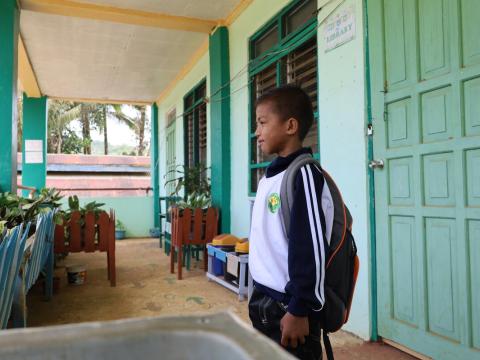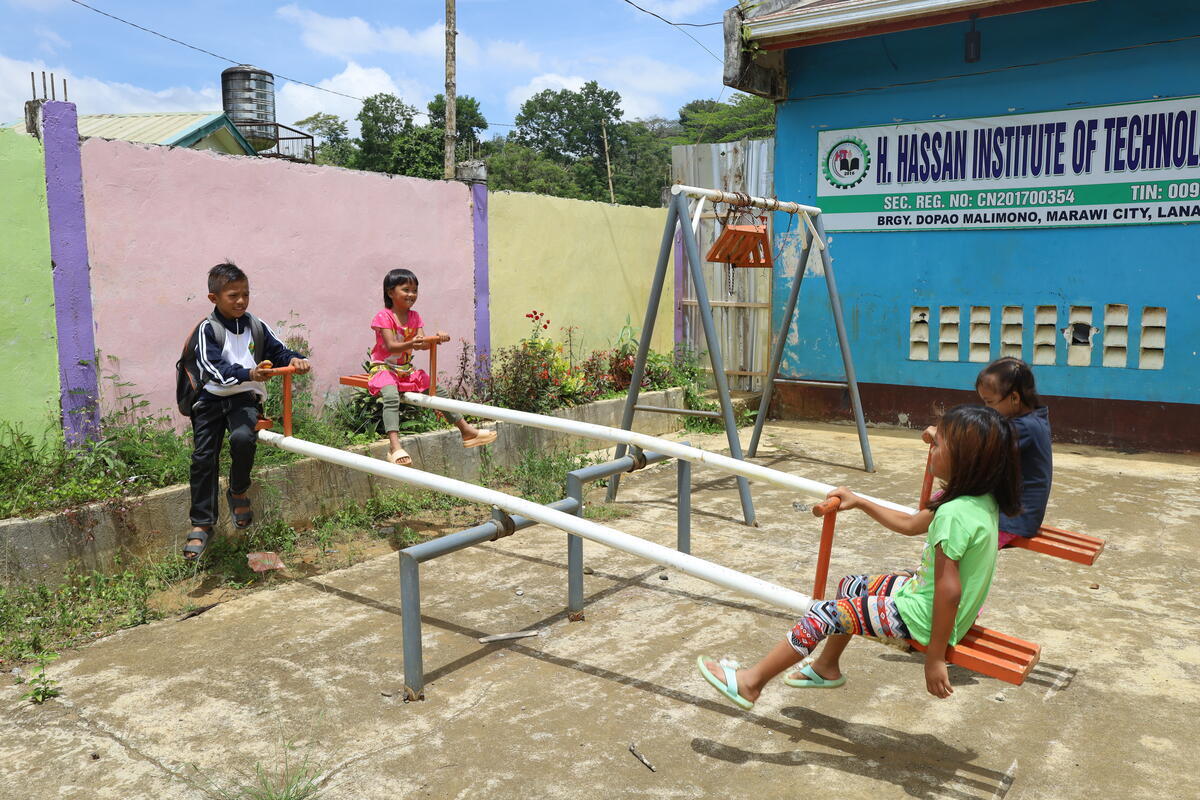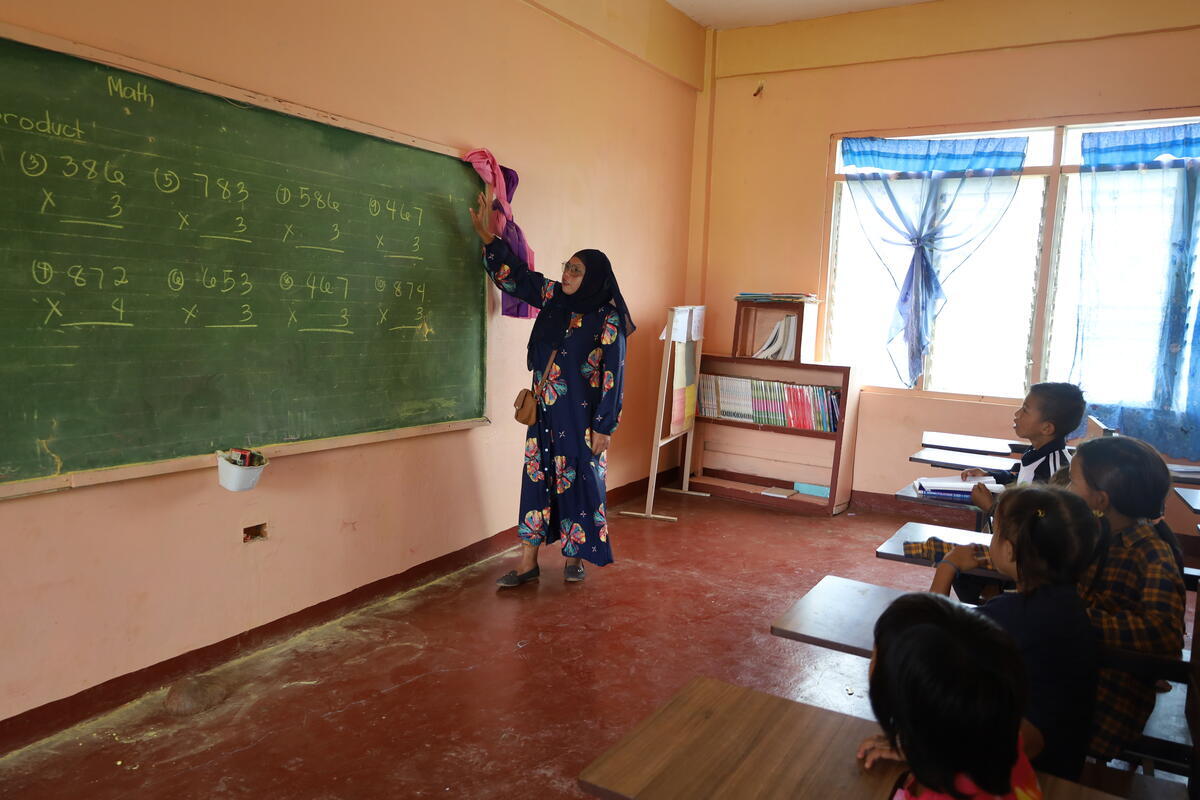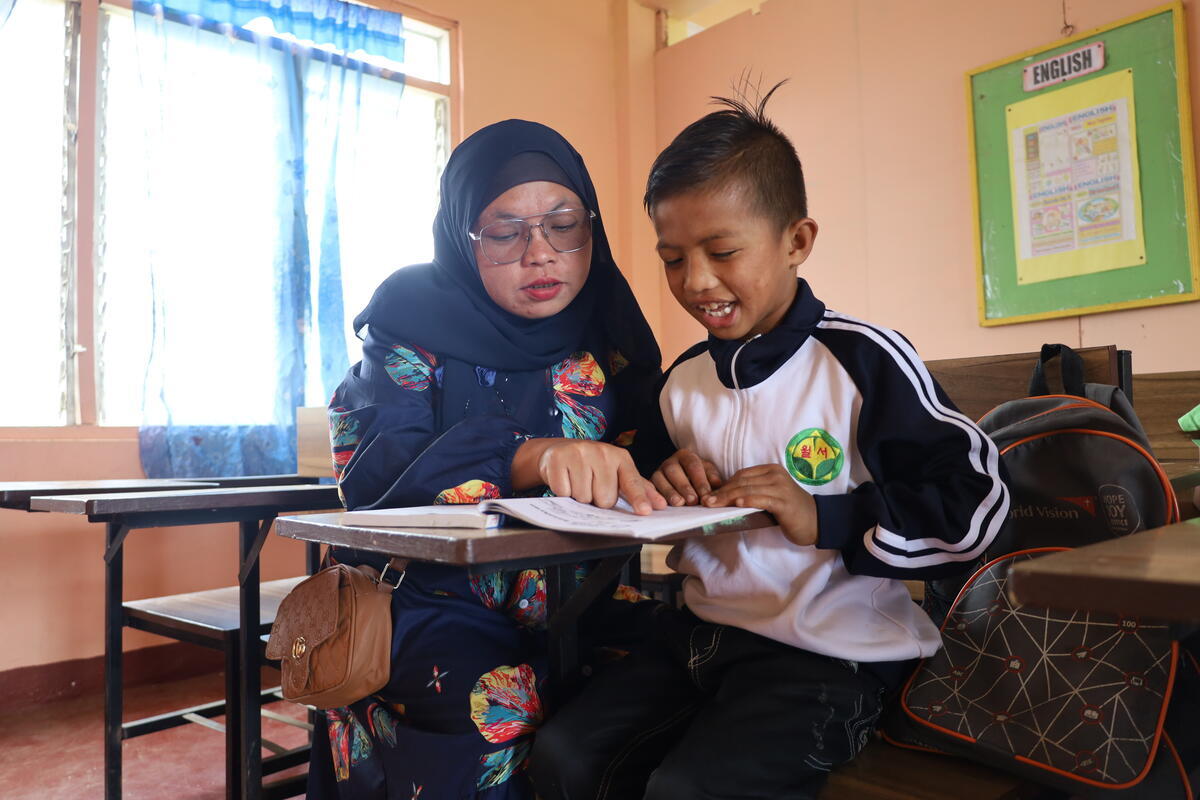A boy, a school bag, and a community hotline

Jubani's Journey: A Boy's Return to School
This is Jubani, a 10-year-old boy from Marawi City, Mindanao, Philippines who stopped going to school to work in construction to help his family earn money. His teachers (who are our active partners ) noticed his frequent absences and less class participation.
But because of a school bag, this boy decided to go back to school which could change the course of his life.
In an interview, Jubani shared with us:
“I am Jubani, I used to work in construction, and now I'm studying again because I was helped by this school bag.
I was so happy when I got a school bag from World Vision because now, I can write and draw. I like to write and draw. I like drawing animals like cows and houses, just the ones I see around us here.
At first, I didn't go to school because there was no money. And when my mother said we needed to gather firewood, we did. My mother could not buy me a school bag. So, when I received a school bag, I was so happy because I could now study.
When I come home from construction work, I often get tired so I just eat and sleep. But when I come from school, my life is good because I play, write, and play with other kids.
I enjoyed school because I could write and read. My life is good now.”

Child labour is a complex issue. It is deeply rooted in its culture, religion, and social factors. What makes it more difficult is that in a community like where Jubani lives, child labour is not even a concept. For them, it is normal for children to work and contribute money for their siblings and families.
Understanding Child Labor
Rainisah, one of the teachers of Jubani, understands this complexity, having experienced child labour herself. She said that it is extremely hard to erase in the minds of the children to work and provide money for their families even at the cost of their education.
“Here in the rural areas, it is not easy to erase in the minds of the children to help their parents. Because, in our community here, child labour is not even a concept.
No matter what you give them, even if you give them all the school supplies,
it's still not enough to make them stop working because they will just say,
'We can't eat those school supplies because we need money to buy rice.'
When I was young, I also went through child labour.
That's why I feel their sentiment.
When I was in elementary school, I wouldn't go to school without anything to sell. Even in high school, I was the one supporting myself.
I was the one working for my school needs.
That's why if you were here back then, maybe I wouldn't have done that.

That's why I am thankful that (World Vision) is here somehow helping with their needs, especially the school materials they received from you.
Teacher Rainisah sees her important role as an educator in shaping the minds of children. But for this to be realized, the whole community must work together to give every child the opportunity to thrive and pursue their dreams.
She also acknowledges the importance of the MAKABATA hotline in Marawi City to provide an easy platform for children, parents, and teachers to report any form of issues concerning children.

“As an educator, we're really on the frontline, we see what the problems of the children are. When we notice something unusual about them, we can call the hotline number because they know what needs to be done with the children. After all, they know what their job is more than us. So, they're the ones who coordinate with other agencies to help the children in need.
The entire community needs to work together, to partner with us because as teachers, we can't educate the child alone. The community needs to help us teach the children everything they need to learn.
Your gifts are indeed helping children like Jubani receive enough food, education, and opportunities they deserve so they can survive, recover, and build a future.